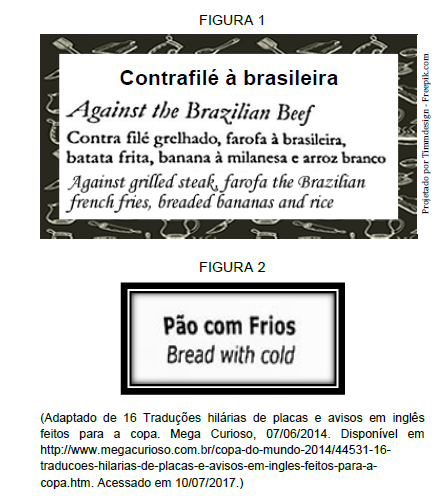Questões de Vestibular
Foram encontradas 70 questões
Resolva questões gratuitamente!
Junte-se a mais de 4 milhões de concurseiros!
ZOMBIE NEUROSCIENCE
I don’t know if cockroaches dream, but I imagine if they do, jewel wasps feature prominently in their nightmares. These small, solitary tropical wasps are of little concern to us humans; after all, they don’t manipulate our minds so that they can serve us up as willing, living meals to their newborns, as they do to unsuspecting cockroaches. The story is simple, if grotesque: the female wasp controls the minds of the cockroaches she feeds to her offspring, taking away their sense of fear or will to escape their fate. What turns a once healthy cockroach into a mindless zombie it’s venom. Not just any venom, either: a specific venom that acts like a drug, targeting the cockroach's brain.
(Adaptado de Christie Wilcox, Zombie Neuroscience. Scientific American, New York, v. 315, n. 2, p. 70–73, 2016.)
De acordo com o autor,
Elderly flight passenger throws coins into engine for ‘luck’, delays take-off for hours
China Southern Airlines Flight 380 was held up at the Shanghai Pudong International Airport after an elderly woman passenger caused a disruption, according to the airline’s official WeChat account. An investigation into the incident is under way.
Passengers boarding the flight reportedly saw an elderly woman throwing coins at the engine for “blessings” from the middle of the boarding staircase and alerted the crew.
Ground staff said the woman, who appeared to be about 80 and had limited mobility, was accompanied by her husband, daughter and son-in-law.
The captain was quoted as saying the metal, if sucked up
by the engine, could have caused serious damage,
including failure.
The flight was later given a green light and took off at 5.52pm, more than five hours late. It is scheduled to arrive in Guangzhou at 8.14pm.
(Adaptado de Sarah Zheng, Elderly flight passenger throws coins into engine for ‘luck’, delays take-off for hours. South China Morning Post, 27/06/2017. Disponível em http://www.scmp.com/news/china/society/article/2100242/elderlyflight-passenger-throws-coins-engine-luck-delays-take. Acessado em 10/07/2017.)
O que é correto afirmar sobre o incidente relatado na
notícia anterior?

Entre as inadequações no uso do inglês observadas nas
figuras 1 e 2, podemos citar:
When does the brain work best?
The peak times and ages for learning

What’s your ideal time of the day for brain performance? Surprisingly, the answer to this isn’t as simple as being a morning or a night person. New research has shown that certain times of the day are best for completing specific tasks, and listening to your body’s natural clock may help you to accomplish more in 24 hours.
Science suggests that the best time for our natural peak productivity is late morning. Our body temperatures start to rise just before we wake up in the morning and continue to increase through midday, Steve Kay, a professor of molecular and computational biology at the University of Southern California told The Wall Street Journal. This gradual increase in body temperature means that our working memory, alertness, and concentration also gradually improve, peaking at about mid morning. Our alertness tends to dip after this point, but one study suggested that midday fatigue may actually boost our creative abilities. For a 2011 study, 428 students were asked to solve a series of two types of problems, requiring either analytical or novel thinking. Results showed that their performance on the second type was best at non-peak times of day when they were tired.
As for the age where our brains are at peak condition, science has long held that fluid intelligence, or the ability to think quickly and recall information, peaks at around age 20. However, a 2015 study revealed that peak brain age is far more complicated than previously believed and concluded that there are about 30 subsets of intelligence, all of which peak at different ages for different people. For example, the study found that raw speed in processing information appears to peak around age 18 or 19, then immediately starts to decline, but short-term memory continues to improve until around age 25, and then begins to drop around age 35, Medical Xpress reported. The ability to evaluate other people’s emotional states peaked much later, in the 40s or 50s. In addition, the study suggested that out our vocabulary may peak as late as our 60s’s or 70’s.
Still, while working according to your body’s natural clock may sound helpful, it’s important to remember that these times may differ from person to person. On average, people can be divided into two distinct groups: morning people tend to wake up and go to sleep earlier and to be most productive early in the day. Evening people tend to wake up later, start more slowly and peak in the evening. If being a morning or evening person has been working for you the majority of your life, it may be best to not fix what’s not broken.
(Dana Dovey. www.medicaldaily.com, 08.08.2016. Adaptado.)
